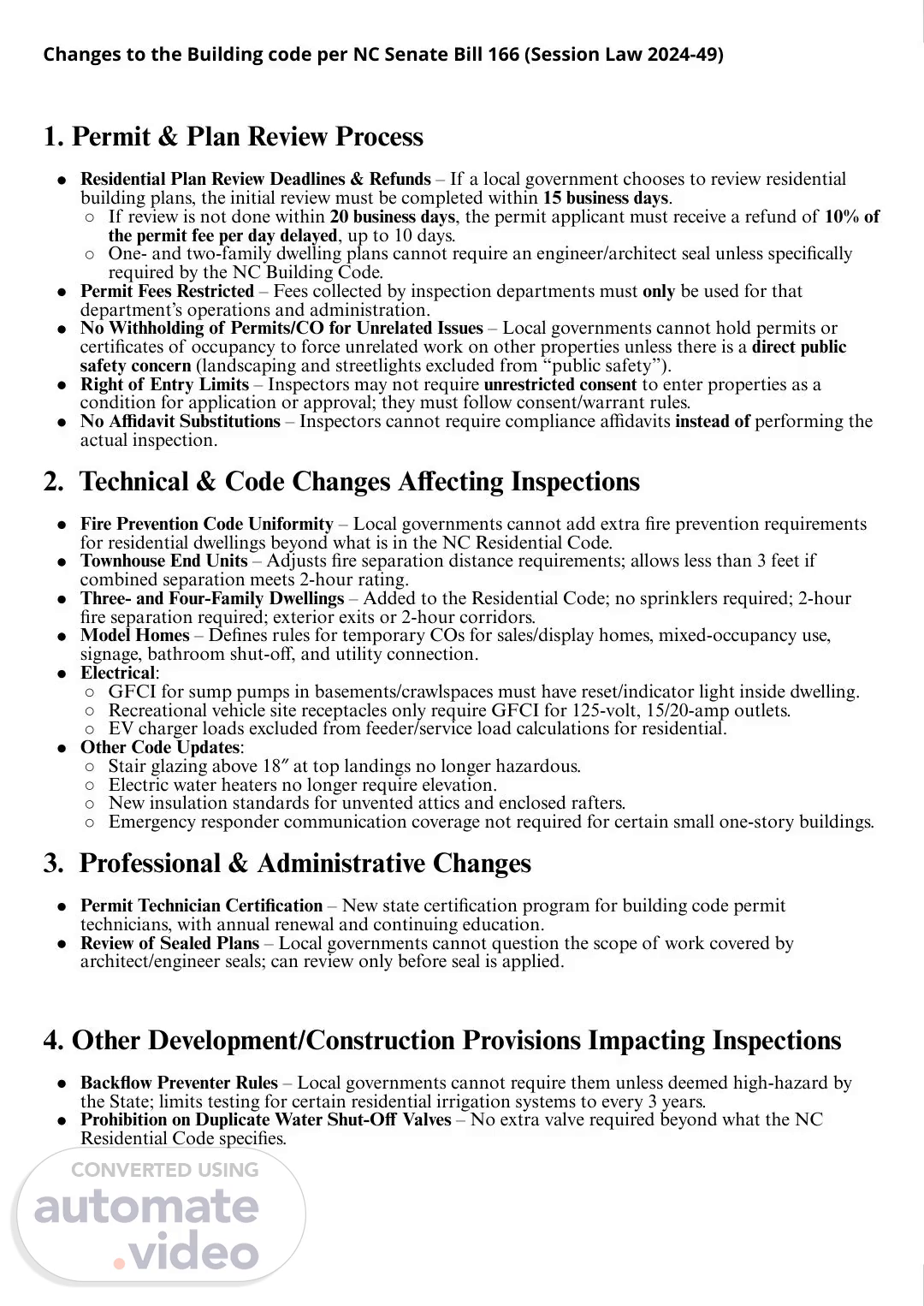Scene 1 (0s)
[Audio] Changes to the Building code per NC Senate Bill 166 (Session Law 2024-49) 1. Permit & Plan Review Process Residential Plan Review Deadlines & Refunds – If a local government chooses to review residential building plans, the initial review must be completed within 15 business days. If review is not done within 20 business days, the permit applicant must receive a refund of 10% of the permit fee per day delayed, up to 10 days. One- and two-family dwelling plans cannot require an engineer/architect seal unless specifically required by the NC Building Code. Permit Fees Restricted – Fees collected by inspection departments must only be used for that department's operations and administration. No Withholding of Permits/CO for Unrelated Issues – Local governments cannot hold permits or certificates of occupancy to force unrelated work on other properties unless there is a direct public safety concern (landscaping and streetlights excluded from "public safety"). Right of Entry Limits – Inspectors may not require unrestricted consent to enter properties as a condition for application or approval; they must follow consent/warrant rules. No Affidavit Substitutions – Inspectors cannot require compliance affidavits instead of performing the actual inspection. 2. Technical & Code Changes Affecting Inspections Fire Prevention Code Uniformity – Local governments cannot add extra fire prevention requirements for residential dwellings beyond what is in the NC Residential Code. Townhouse End Units – Adjusts fire separation distance requirements; allows less than 3 feet if combined separation meets 2-hour rating. Three- and Four-Family Dwellings – Added to the Residential Code; no sprinklers required; 2-hour fire separation required; exterior exits or 2-hour corridors. Model Homes – Defines rules for temporary COs for sales/display homes, mixed-occupancy use, signage, bathroom shut-off, and utility connection. Electrical: GFCI for sump pumps in basements/crawlspaces must have reset/indicator light inside dwelling. Recreational vehicle site receptacles only require GFCI for 125-volt, 15/20-amp outlets. EV charger loads excluded from feeder/service load calculations for residential. Other Code Updates: Stair glazing above 18″ at top landings no longer hazardous. Electric water heaters no longer require elevation. New insulation standards for unvented attics and enclosed rafters. Emergency responder communication coverage not required for certain small one-story buildings. 3. Professional & Administrative Changes Permit Technician Certification – New state certification program for building code permit technicians, with annual renewal and continuing education. Review of Sealed Plans – Local governments cannot question the scope of work covered by architect/engineer seals; can review only before seal is applied. 4. Other Development/Construction Provisions Impacting Inspections Backflow Preventer Rules – Local governments cannot require them unless deemed high-hazard by the State; limits testing for certain residential irrigation systems to every 3 years. Prohibition on Duplicate Water Shut-Off Valves – No extra valve required beyond what the NC Residential Code specifies..
